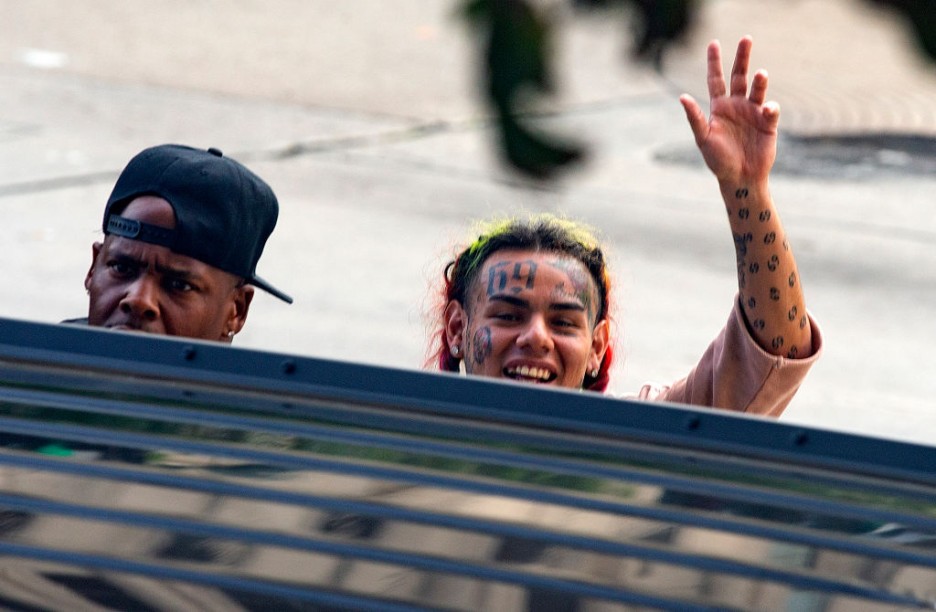Tekashi69 Facing Another Lawsuit by None Other Than Tattoo Artist Who 'Inspired' Him

Another day, another legal trouble for Tekashi69. A man that the rapper first accused of using heroin filed a lawsuit. The man turns out to be a tattoo artist.
Based on the court documents obtained that Radar Online was able to obtain, a Japanese tattoo artist named Takashi Matsuba is suing Tekashi69, who was born with the name Daniel Hernandez. The artist is also out to get Showtime Networks.
Matsuba says the rapper, 25, "created confusion" as well as a false association between them when they do not even know each other.
The tattoo artist the only thing he knows of Tekashi is that he ripped off his name.
"The "defendant Hernandez is a convicted violent felon who has served time in prison, and on information and belief was also convicted of sexual misconduct with a minor," the artist explains. "This action also asserts a claim for defamation arising from the defendants' making and broadcasting the absolutely false and defamatory accusation that plaintiff is a heroin addict," the suit further reads.
ALSO READ : Britney Spears Calls 911 The Night Before Her Conservatorship Hearing - Her Desperate Plea Revealed
The tattoo artist's ire can be traced back to the time when the rapper's documentary dropped.
Matsuba says that in the Hulu documentary "69: The Saga of Danny Hernandez," his name is posted on the screen during one segment.
In another scene, the director allegedly said, "a Japanese tattoo artist named Takashi would inspire Danny's new persona, Tekashi69."
Matsuba added that in another documentary
"Supervillain: The Making of Tekashi 6ix9ine," which was shown on Showtime, Tekashi reportedly falsely accused him of being a heroin addict.
A brief check of the documentary would show Hernadez saying in one confessional, "There was this tattoo artist named Takashi from our neighborhood. And he was this heroin addict. He did heroin to create. He did it to get himself in his little world. He did it to be himself. And that's where I got the name Tekashi from. And that's who I am."
Before the pandemic, Tekashi was jailed for racketeering sentences, and he was supposed to be getting out in the summer of 2020. However, in light of the COVID-19 outbreak and preexisting conditions, he was released much earlier than his two-year sentence, for potentially being a high-risk in a prison setting.





